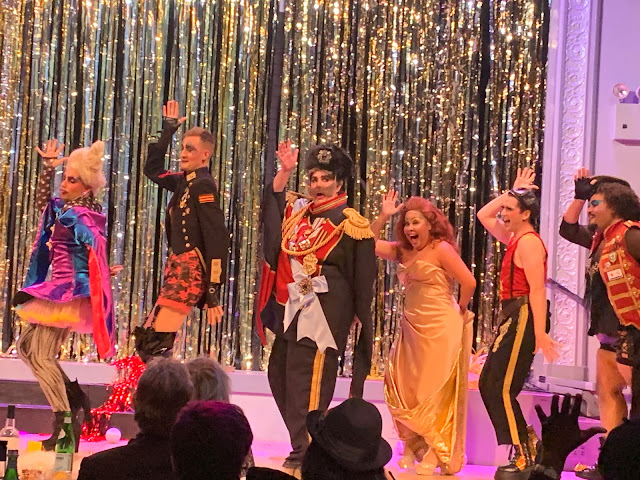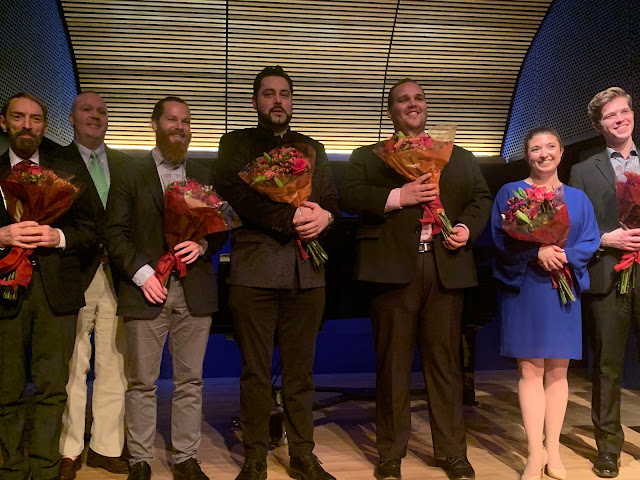At the urging of one of our favorite directors (Bea Goodwin) we were persuaded to trek to a performance space in the East Village to listen to some new music--instrumental music, no less, called Chasing the Light. Our lack of enthusiasm turned to rapture within the first five minutes. To us "new music" (anything in the last 3/4 of a century) has meant sitting in a concert hall dimmed to the point of obscuring the boring composer's notes in the program, figuratively scratching our head, looking at our watch, impatient for the piece to end so we could get on to the Beethoven, Tchaikovsky, or Mahler that we came to hear. Little did we know that "new music" could take us to places buried in our unconscious or places never before imagined. For an hour and a half we were transported to inner space and outer space.
The closest we have ever come to such an experience was at events called "happenings" that we attended long long ago. But this event, immersive as it was, took at its starting point the music of Whitney George which she herself conducted. The work comprised 16 episodes (movements?) that had as a unifying theme the use of the interval of a 2nd with the two notes on the scale rubbing against each other and creating overtones that bounced around the performing space. There were brief motifs and partial scale passages but no melody to speak of.
Ms. George's composition was performed by six musicians--a pianist, a flutist, a clarinetist, a violinist, a cellist, and a percussionist. We doubt we have ever heard such interesting textures. Often, the combination of instruments led us to believe that there were more than six instruments involved. We've never heard that before.
But this was not just a musical event. It was an immersive experience that went far beyond. "mixed media". Fortunately, there were none of those projections that annoy and distract us. Rather there were "light boxes", also vaguely recalled from long long ago, projecting biomorphic images on the walls.
The space was pitch black, which augmented the experience of focusing on the moment as well as, paradoxically, allowing the imagination to run wild. Each episode had its own "light show" , illuminating inner space and sometimes outer space. One was continually surrounded by an environment which enhanced the music.
Another element was that of dance, or body movement if one prefers that term. In one episode the dancer's silhouette was projected as shadows on the walls. The most striking episode was one in which the space was filled with fog and one could see the dancer, or part of her body, through the fog as it shifted around the space. She was accompanied by the violin. This evoked a long forgotten memory of being stranded at the top of the Matterhorn in Switzerland during a whiteout in which we waited for the briefest interludes in the fog to slowly pick our way down the mountain. Only later did we learn that the episode included the use of the scent of pine, which we might have perceived at an unconscious level.
Our words here are only a feeble attempt to describe something that was meant to be experienced. We can only say that we spent an hour and a half in an altered state and left filled with wonder. The chamber music collective which created this work is called Curiosity Cabinet.
© meche kroop












